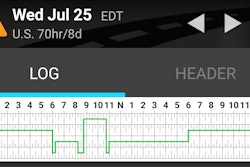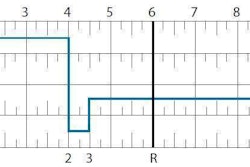Aaron Huff, writing in Overdrive sister magazine CCJ, recently detailed a question he received from a reader, who’d received a marketing email from the Nashville, Tenn.-based ELD Solutions provider that began with the following question:
Want E-logs that you can edit and add driving time?
The ELD Solutions company was promoting functionality in its electronic log application that allowed use in “AOBRD mode.” Using that mode, the email explained, carriers could simply edit driver logs and not leave a electronic trail showing the original log. “We only store the edited version, and not the original log,” the email said.
AOBRD, regular readers will recall, stands for Automatic On-Board Recording Device, the standards for which are codified in CFR 395.15, which specifies the conditions by which fleets can voluntary use e-logs in lieu of paper logbooks.
The CCJ reader, Huff wrote, wished to remain anonymous, and had this to say about the email he received and forwarded:
As a small carrier who strives for compliance and agrees with the ELD mandate (for the most part), I feel that the ELD mandate only makes sense if the system is an honest one. If drivers or companies are allowed to violate the HOS while technically in “compliance,” then they would gain an unfair competitive advantage.

Reports of e-log edits at fleets using them under the AOBRD standard today abound, of course, as any driver attuned to other drivers’ social media can attest. The extent to which the particularities of the editing feature in ELD Solutions’ application is unique is unknown. But many providers offer users the option to purchase a solution and run it in AOBRD mode, with at least some greater back-office editing flexibility, through December 2019, then switch to ELD mode when the AOBRD grace period ends.
However, as Huff reported on current regs for AOBRD edits:
According to information on its website, the Federal Motor Carrier Safety Administration allows fleet managers to edit drivers’ records of duty status from an AOBRD “to accurately reflect the driver’s activity.”
The manager must include an explanation of the mistake in the remarks section of either the original or amended record of duty status, the agency says, and “both the original and amended record of duty status must be retained by the motor carrier.”
According to the email from ELD Solutions, its AOBRD Mode does not store the original log. CCJ sent the exact wording used in the email to FMCSA spokesperson Duane DeBruyne for clarification. He confirmed that editing is allowable under the AOBRD rule, but did not implicate ELD Solutions for any wrongdoing.
As regular readers will know, under the new ELD rule, fleet managers will be able to edit driver logbooks, but the rule returns control of most editing to the driver. When the back office manager is making the edit, drivers must be given a chance to accept or reject their edits. Drive time, from any account, cannot be shortened under the new rule, except in rare cases when incorrectly assigned in a team operation.
Those interested in further information can read Huff’s full report via this link.










